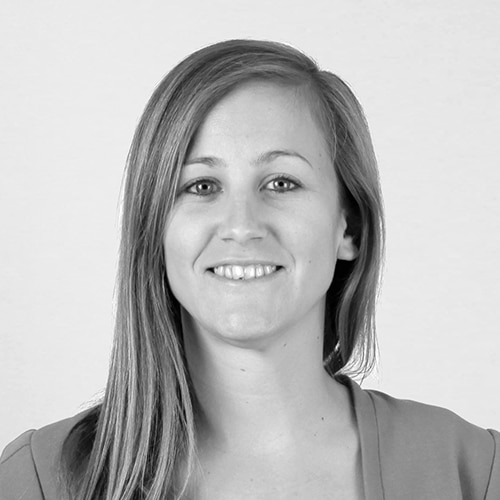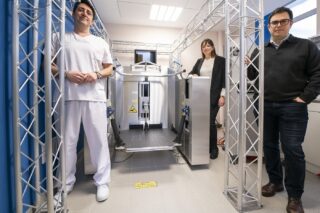The 2024 DiMiMed Conference highlighted critical advancements and adaptive strategies in military medicine amid global conflicts and evolving crisis needs.
Here are the main takeaways:
- Adaptive Strategies in Crisis: Focused on evolving military medical needs in global conflicts, emphasizing rapid adaptation.
- Ukraine’s Medical Response: Emphasized TCCC training and international collaboration, responding to high casualties with streamlined protocols and extended training hubs in Poland.
- Combat Mental Health: IDF’s “Combat Stress Reaction” unit uses mindfulness and structured routines to manage acute combat stress.
- Telemedicine Advances: Tools from Allm, Philips, and Qoca enable real-time medical data sharing and remote support in high-risk areas.
- AI in Trauma Care: AI supports complex trauma management and enhances telemedicine’s reach in crisis scenarios.
Changing Times – Time for a Change
In light of escalating global conflicts, the DiMiMed International Conference on Disaster and Military Medicine offered timely insights into the evolving role of medical care in high-stakes, austere environments. Taking place alongside the renowned MEDICA trade fair, this year’s DiMiMed event in Düsseldorf was grounded in the theme “Changing Times – Time for a Change.”
The conference aimed to address how ongoing wars are reshaping the field of military medicine. Speakers highlighted shifts in technology, treatment approaches, and mental health support. These conflicts pose profound challenges, ranging from mass casualties to mental trauma and resource scarcity. DiMiMed provided a platform for military, humanitarian, and medical experts to explore innovations in conflict medicine and assess whether current practices meet the urgent needs on the ground.
Speakers covered a broad spectrum of topics, each shedding light on critical aspects of military medicine in the current global landscape. Some presentations examined Ukraine’s efforts to adapt its medical crisis response amidst resource limitations and explored the tactical integration of military medical protocols within larger alliances. Others focused on psychological care, detailing how digital tools and artificial intelligence are being used to prevent and treat traumatic stress. Additional discussions addressed the vital role of telemedicine in enhancing care access in remote or dangerous areas. These discussions underscored the urgent need for adaptive medical approaches that save lives and sustain resilience among military personnel and civilians alike.

Transforming Combat Medicine: Ukraine’s Evolving Tactics
Ukraine’s large-scale conflict has reshaped its military medical approach, emphasizing rapid response, international collaboration, and tactical medical training. Previously focused on civilian protocols, Ukraine has adapted to frontline needs since the 2022 escalation, introducing training levels like “combat medic” and “combat lifesaver.”
“It is necessary that all medical professionals in Ukraine are trained in Tactical Combat Casualty Care (TCCC) and the MARCH algorithm, essential for ensuring survival in combat situations,” noted Dr. Aleksander Pokanevych, MD, MPA, MSc, Kyiv Medical University, during the talk Bridging Borders: Ukraine’s Medical Response in Crisis and NATO Integration Challenges.
Beyond immediate care, Ukraine is addressing specific war-related injuries, with 74% involving limbs from artillery and drone strikes. The establishment of KMU’s campus in Poland allows Ukrainian students to continue their training safely with support from over 50 Polish hospitals, creating a steady flow of trained professionals. Initiatives like “Blood Thursdays” and new rehabilitation centers further support long-term recovery for wounded soldiers. Dr. Pokanevych emphasized that despite the challenges:
“We were the first medical university to integrate tactical combat medicine training as a core scientific component,” ensuring that both students and healthcare professionals are equipped to manage severe battlefield injuries.
Ukraine’s restructured response underscores the importance of international support for evacuation and emergency care. While NATO’s evacuation standard is 40 minutes, Ukraine’s can stretch to 11 hours due to complex battlefield conditions and limited resources. This gap highlights the need for tailored protocols, advanced equipment, and enhanced personnel training. As Dr. Pokanevych stated:
“In Ukraine, the evacuation time for injured soldiers can reach up to 11 hours… This delay emphasizes the urgent need for tailored medical protocols.”
He stressed that without continued international support, Ukraine risks prolonged conflict and instability, underscoring the vital role of global collaboration in sustaining its medical and military resilience.
A lack of mental health professionals and infrastructure for long-term care is causing serious problems. Speakers also mentioned service delivery challenges regarding electricity, internet, and more. Still, a few of them are turning to AI solutions in areas such as complex trauma to assist in assessing a soldier’s state of being. Digital solutions currently exist but are not communicated.

Armed Zen’ification to Treat Mental Trauma
Major (ret.) Dr. Oded Arbel, MD, from the Day Care Unit of Beer Sheva Mental Health Center, recently shared insights into the unique mental health support provided by the Combat Stress Reaction (CSR) unit in the IDF’s Gaza Division. This specialized team, composed of social workers, clinical psychologists, and psychiatrists, employs a blend of traditional therapeutic practices and Zen-inspired mindfulness techniques to help soldiers cope with acute combat mental trauma.
“We created an enclosed area so that people couldn’t just come and go as they wished. We provided blankets, tea, chocolates, and a sense of safety,” Dr. Arbel stated during his speech at DiMiMed, entitled Zen Monastery in IDF Gaza Division – on the challenges of treating warriors acute combat mental trauma.
“This nurturing environment is key to reducing the level of stress among soldiers, allowing them to feel sincerely taken care of.”
In addition to fostering a secure space, the CSR unit integrates structured routines to promote emotional resilience among soldiers. Daily practices such as morning meditations and group sports activities serve as stabilizing anchors in the chaotic context of combat. Dr. Arbel noted:
“Daily routines, like morning meditations and group sports activities, served as a stabilizing anchor. These consistent sessions provided structure and stability amidst chaos, helping soldiers retain a sense of normalcy and emotional balance.”
This approach addresses the immediate psychological needs of soldiers and offers a model for broader applications in military mental health support.
Telemedicine and Digitalization in Military and Disaster Medicine
Telemedicine and digitalization were key topics at the DiMiMed event, where companies like Allm, Philips, and Qoca showcased their latest contributions to enhancing military and disaster medicine. Allm’s JOIN MobileCare platform, introduced by Julia Holthausen, exemplified this shift by enabling real-time medical data sharing through a cloud-based system designed for military and disaster settings. With over 1,000 installations worldwide, JOIN MobileCare provides situational awareness to all medical personnel involved in a case—from field responders to hospital staff—through a vendor-independent platform that integrates data from various devices, including CT scanners and ultrasounds, ensuring timely and coordinated patient care even in remote environments.
“We want to provide immediate, effective, and remote medical care to our patients, regardless of their location…JOIN MobileCare aims to bridge this gap. It’s a fully integrated mobile care solution that connects all stages of emergency medical response,” Julia Holthausen, Allm EMEA GmbH, stated during her talk entitled Advancements in Military and Disaster Medicine: Telemedicine and Digitalization at the Forefront.


Philips also highlighted its contributions to telemedicine at DiMiMed, particularly with its Battlefield Assisted Trauma Distributed Observation Kit (Batdok™) and tele-ultrasound solutions. These technologies allow real-time monitoring and two-way communication, essential for guiding less experienced personnel in critical settings. Philips’ portable Lumify ultrasound system, enhanced by the Reacts platform, enables clinicians in crisis zones to consult with remote specialists through live-streamed ultrasounds, enhancing patient survival rates by facilitating rapid assessment and support.
Qoca presented its AI-driven telemedicine platform, which offers scalable, real-time consultation capabilities, making it suitable for both military and civilian disaster scenarios. Qoca’s system integrates diverse medical devices and data-sharing features to streamline patient care in challenging environments, with tools for multi-party video consultations, live monitoring, and seamless integration with existing medical systems. These presentations at DiMiMed by Allm, Philips, and Qoca underscore the event’s focus on leveraging technology to overcome the logistical and medical challenges faced in military and disaster medicine.













